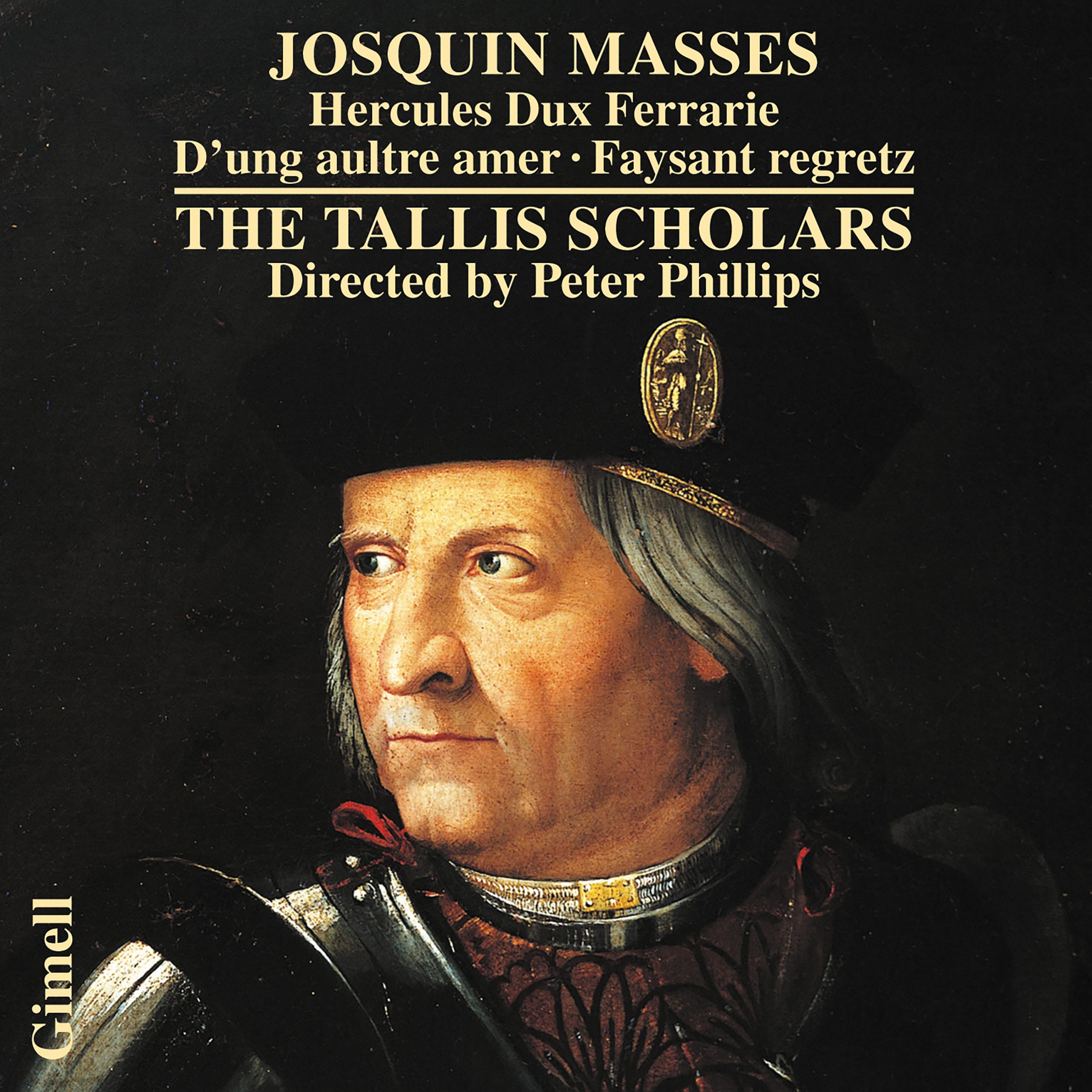Hercules Dux Ferrarie, D’ung altre amer, Faysant regretz
The Tallis Scholars, Peter Phillips
71:40
Gimell CDGIM 051
October 2020!
Click HERE to buy this on amazon.co.uk
This is the final disc in The Tallis Scholars’ complete recording of Josquin des Pres’s masses. Perhaps it is just as well, because this reviewer is running out of superlatives for the music itself and for this choir’s performances of it. Peter Phillips makes substantial claims for these works in his accompanying notes, and it could indeed be said that, so varied is Josquin’s treatment of the Mass text throughout the entire series, many of the eighteen works could almost seem to have been composed by different composers. (Indeed, the Josquin canon has come under intense musicological scrutiny in recent decades, and Missa Da pacem, included in the series, is more likely to have been composed by Bauldeweyn, notwithstanding conflicting attributions to Josquin. This is clearly stated in the recording’s booklet.) This final disc provides some of the knottiest music in the series, and some of the most challenging for the listener. Much of it is music of obsession, with Josquin’s repeated use of one particular motif of four notes in Missa Faysant regretz set beside the egomania of Ercole I d’Este of Ferrera, dedicatee of Missa Hercules Dux Ferrarie. To illustrate this one can do no better than to quote Peter Phillips’s note in the accompanying booklet: “To understand how this Mass is constructed it is necessary only to remember that Duke Ercole liked to hear his name sung obviously and often. To this end Josquin took his name and title, HERCULES DUX FERRARIE, and turned their vowels into music by way of the solmisation syllables of the Guidonian hexachord, giving a very neat little melody: … re ut re ut re fa mi re … He then writes these eight notes to be sung 47 times …” The remaining piece Missa D’ung aultre amer is the antithesis of such constructions, being an essay in brevity and simplicity based upon one of Ockeghem’s finest chansons, no doubt as an act of homage by Josquin to the man who might have been his teacher.
A digression. Having seen the British gentleman I am about to mention with his wife at a concert of music by Byrd in the Wigmore Hall, London, a few years ago, I will of course no longer hear a word said against him, but I cannot resist mentioning the resemblance of Ercole, whose portrait is reproduced on the front of the accompanying booklet, to the prominent politician Lord Heseltine. I draw no conclusion other than that they share an ability to appreciate great Renaissance composers.
And as Byrd said of his own music in 1611, “a song that is well and artificially made cannot be well perceived nor understood at the first hearing, but the oftner you shall heare it, the better cause of liking you will discover.” Repeated hearings of the music on this disc keep revealing its felicitous qualities. The obsessive aspects of the music become part of a bigger, broader musical picture as Josquin manipulates them to support the overall construction and rhetoric of his masses. As Peter Phillips notes in his booklet, approaching the point from a slightly different direction, this is strikingly illustrated in the third Agnus of Missa Faysant regretz where, for the only time in the work, Josquin has the sopranos sing the complete superius line from the rondeau by Walter Frye (one source has Binchois) on which the mass is based, over the intricate counterpoint in the three lower parts. Missa D’ung aultre amer is eccentric. A remarkably brief Gloria clocks in at below two minutes, with a motet Tu solus qui facis mirabilia replacing the Benedictus, the final section of which, “Audi nostra suspiria”, begins with a striking passage in the style of mediaeval faburden, comparable with a similar briefer moment at “qui locutus est” in the Credo of the Missa Hercules Dux Ferrarie, and the entire mass concludes with an exquisite cadence.
For all Ercole’s entitled narcissism, it is mountainously to the credit of Josquin that his mass can be appreciated on its own terms as a piece of music without an awareness – or at least without taking any notice – of the repetitions of the autarchic Ercole’s name, no more than one needs to focus upon the plainsong while listening to an In nomine. In the accompanying booklet, Peter Phillips notes favourite passages in this and the other masses. These are the insights of someone who has conducted and indeed lived these eighteen works, experiencing them profoundly from the inside. From the humble outside, I would particularly mention the many wonderful passages in two parts in this mass, particularly “pleni sunt caeli” from the Sanctus, and all the duets in the first Agnus. Overall it is one of the major masses in this remarkable series.
The series began with what was even then almost frighteningly fine performances of the Missae Pange lingua and La sol fa mi re. The former gained all the attention, but for this listener it was the latter which left me even more astonished at both the music and the performance: I expected Pange lingua to be great, but was taken aback at the quality of a work more from the margins of Josquin’s output, its qualities laid bare by the forensically beautiful singing of The Tallis Scholars under Peter Phillips. And here they still are, 34 years later, doing a major work full justice and laying bare the glories of two more of those marginal masses.
Richard Turbet
